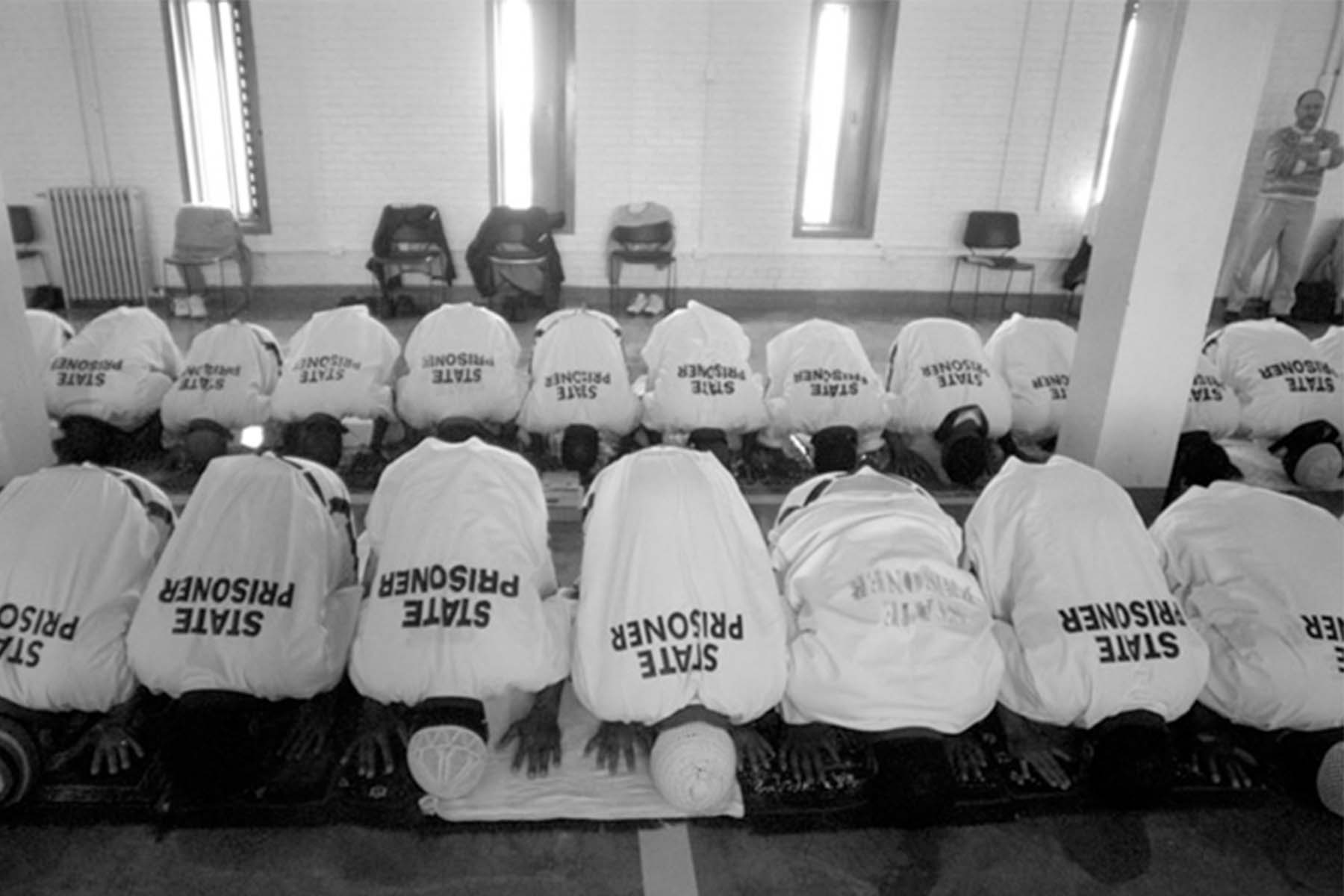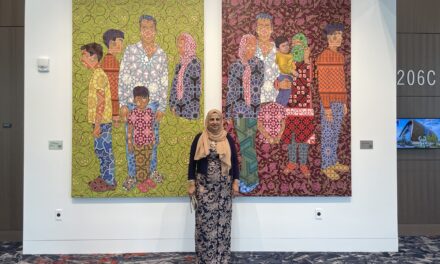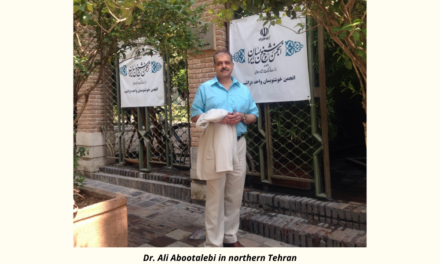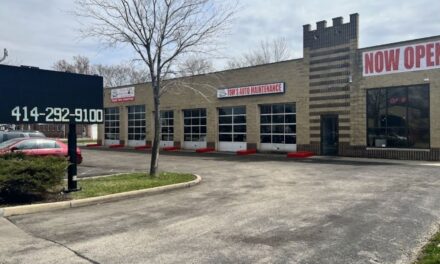© Photo
LauchGood campaign – Muslim Prisoners in Iowa
Milwaukee’s Da’wah Center will soon open Ibrahim House, a residence for those recently released from prison. Though Ibrahim House is not yet open, the Da’wah Center’s Brother Will Perry arranged for WMJ to speak with a group of men who are veterans of Wisconsin’s prison system and the Milwaukee County House of Correction. They shared their experiences of being incarcerated while Muslim in the State of Wisconsin. The interview was a follow-up to one WMJ held last September with representatives of the Wisconsin Department of Corrections.
Time spent behind bars by Aaron Lawrence, Ali Aziz Wahad, Anthony Leslie, Andre Bond, Frederick Young, Sr., and Josep Cooper ranged from 2 to 21 years. Zakaria Nurdeen, a retired prison chaplain and imam, sat in on the interview. A common theme in our conversation was that, while several of the men were Muslim at the time of sentencing, being locked up was a turning point in their spiritual lives.
As Andre Bond explained, “I didn’t take my religion very serious until I got incarcerated [in 2000] and had time to reflect. . . I was distracted by a lot of things, living the life. At that time I was in Redgranite [Correctional Facility]. The Muslim community was there. The brotherhood was real strong. Everyone worked on their weaknesses as far as prayer, education. From that point on, I grabbed my religion and it helped me out a lot.”
Frederick Young was not a Muslim before being locked up in the Milwaukee County House of Correction in February 2017. “While I was there, I was still somewhat living the life. . . I was still just doing me, I should say the old me,” he said. Young met a Muslim in prison and “started sitting with him, talking with him. We read together. And the more I read, the more I learned.” Young took his Shahada, or declaration of faith on the first day of Ramadan in 2018. Shortly after, the man who was teaching him was released and “a few other younger people in my unit came to me. They watched me, how I read and prayed, and I guess they was inspired by it,” Young said. “So they came and wanted to join me, which I had no problem with, even though I was still learning myself. And it was just, by the days, getting bigger and bigger in the dorm.”
Aaron Lawrence was released from Winnebago, a minimum security facility, a little more than three months ago. It was his fourth incarceration. “When we say we were in the street, that’s what we worshiped, the street. So we waver back and forth. We may have accepted the Deen (faith) at some point, but the street calling became much stronger. So we dipped and dabbed,” he said.
However, serving time actually helped Lawrence and the other men take stock of their lives. “We go into incarceration, and we able to do some self-reflecting. . . You have time to actually see who you are. It’s a humbling experience to be locked up,” said Lawrence. “You have to understand, we puttin’ on somebody else drawers. And there’s nothing more humbling [than] not having your own pair of underwear. So all the bravado and everything seems to fall at that point. Now you actually are who you are. You can pretend to still be who you were on the street, or you can make a decision, that’s not who you want to be anymore.”
While the incarceration rate is falling nationally, in Wisconsin it seems to be heading in the opposite direction. The nonpartisan research organization Wisconsin Policy Forum found that the prison population in Wisconsin surged in the 1990s and then began to decline over the next twenty years. However, as of 2013, the number of people in the state’s custody began to rise again, and now stands at over 23,000.According to the DOC, as of May 2019, 2,824 individuals housed in its facilities self-identified as Muslim, many converting while in prison.
Kelli West is the religious practices coordinator for the DOC’s Division of Adult Institutions, which oversees 36 adult correctional facilities and three bureaus. Both West and the men we spoke with acknowledged that the DOC does allow Muslims – at least those who are not in solitary confinement – to pray together for Jummah, the Friday congregational prayer.
The DOC makes three types of dietary accommodations, providing Halal, Kosher, and plant-based diets for those who request them. “We don’t automatically assume that a Muslim inmate wants to have Halal accommodations,”West said, but by filling out the appropriate form, “they can request that if they wish. Inmates who want to make those observances have the opportunity.”
Muslim inmates are also able to fast during Ramadan. In 2019, West said, “We had 803 inmates who received Ramadan fasting accommodations.” That means, she said, “we’re going to provide them with their full and adequate nutrition before and after fasting hours.” That could mean bag lunches twice a day, or at the smaller facilities, a dinner tray may be set aside and delivered after sundown.
“Sometimes the inmates complain about the food, and that’s true not just during Ramadan,” West said. “It’s challenging to feed 23,000 inmates three meals a day, but we do make those accommodations happen in order for the inmates to practice.”
The current policies on dietary accommodations have been in place since October 2016. For some of the men, who served their time before the current policies were implemented, memories of the struggle to remain a practicing Muslim while in prison were still fresh.
Anthony Leslie has been paroled for three years, after being released from the Felmers O. Chaney Correctional Center at 2825 N. 30th St. in Milwaukee. He said, “They tried, somewhat to accommodate us. They make sure that they mark the menu so you know there’s pork on it. They try a little bit more now than in the past cause they got a whole lot of lawsuits against them for not accommodating.”
“They didn’t force us to eat no pork,” said Andre Bond, who served eight and a half years before being released from the Racine Correctional Institution. “They’d put it on your plate and say, ‘Well just don’t eat it.’ But if you don’t eat that, they’re not gonna give you no substitute. You might have one officer, if you’re not a troubled convict, might say, ‘Give this guy a peanut butter sandwich’ or something. That’s very rare. You know, when it come to accommodatin’ us, they give us beans, cold beans, and a fish patty. The Jewish community, they accommodated them. And this is how the lawsuit come about.”
Or, as Anthony Leslie said, “You just have to eat the sides, that’s what you eat.”
For the men we spoke with, one of the most challenging aspects of being locked up was dealing with the prison guards.
“Us as practicing Muslims are astute at following the law,” Aaron said. “Islam teaches us to become knowledgeable. We’re supposed to learn. So when one comes in there . . . he becomes very knowledgeable about what the rules are. And there’s nothing like an inmate telling an officer what his job criteria is and he’s not following his rules. . .We’re encouraged to file a grievance. It’s said very snotty. If you have a problem with it, go file it! If you know how to articulate it and state the statute – those are the [grievances] that get recognized. But then you get retaliation.”
And sometimes being part of the Muslim community while behind bars is not without risks. When there is “a unified effort of brothers who got together and are consciously going in the same direction,” Aaron said,“that’s called ‘group resistance’ in the institution. Getting together and articulating something, our grievances have to be worded differently. It cannot say the same thing. Then you’ll be thrown in the hole [solitary confinement] for group resistance.”
Andre pointed out that the guards are often studying prisoners to judge the depth of their seriousness about Islam. “Once you start learning your religion, it changes you. . .When you learn your religion from the inside, it humbles you, it really changes your life. You have some individuals who say they’re Muslims, but they’re hiding under this umbrella. But the guards know who they are anyway, cause they never come to Jummah.”
“Some officers give you the opportunity to see if you’re actually real about your religion or not. And those are the ones that may quietly advocate for you when their peers are actually at you,” Aaron said. “Being in certain institutions, you know which officers probably searched your room because they reveal their animosity or their prejudice. You’ll know because [your property] is more disrespected than the bunk next to you or the room next to you. You can see the intention and the animosity. And it’s all just an effort to see if you’re actually who you say you are.”
And once they’ve been released, one thing all the men understand, Josep said, is that “when it comes to parole officers and probation officers, you got to walk a fine line. They can send you back.”














